Exclusive Interview: “Kinky Boots” star J. Harrison Ghee on the power of drag
From the instant J. Harrison Ghee donned a pair of heels, he knew he'd found his calling. Now he's starring in one of Broadway's biggest touring hits.

“I just turned 27 yesterday!”
Harrison Ghee gracefully settles his lanky, 6’4″ frame into one of the antique settees in the Kennedy Center’s renowned “Bird Room,” where all manner of stuffed winged creatures peer ominously from glass cases. He shrugs it off the notion of working on his birthday with a laugh.
“Being the star of a show at The Kennedy Center for your birthday? I’ll take it.”
Ghee plays Lola in the national touring company of Kinky Boots, the Tony-winning Broadway musical featuring a bright, buoyant score by Cyndi Lauper and a book by go-to playwright Harvey Fierstein. Billy Porter originated the role on Broadway, winning a Tony for his wry, emotional portrayal of a drag queen who saves a small, north England shoe company from ruin by devising a thigh-high heel exclusively for drag queens.
Anyone who saw Porter would agree that his was a hard act to follow — it was one of those forever-defining performances, much like Jennifer Holliday’s Effie in Dreamgirls — but Ghee is remarkable in his own right, bringing a sense of style, snap and sizzle and walking away with the audience’s heart. His Lola conveys a warrior spirit — especially at the character’s most emotional moment where, in the evening’s showstopping anthem “Hold Me in Your Heart,” the survivor spirit emanates to the upper reaches of the Opera House. Ghee’s performance is both measured and unrestrained. If there weren’t about a dozen or so other reasons to see Kinky Boots, Lola would be enough.
“It’s therapy for me,” says the actor, smartly outfitted in a cobalt blazer, pastel yellow bowtie and brightly checkered shirt. “I put my mess into the show.”
That “mess” began in North Carolina, where Ghee was reared in the strict environs of a Baptist family. He found solace in music, however, and started singing in the family’s church choir at an early age.
“There are pictures of me at age three with a mike in hand, singing,” he says. “It’s what I’ve always done. Music is my safe place. It’s where I can express myself. It’s where I can live and thrive and inspire and encourage, and do so many things. Music is my life.”
Another, more secretive part of Ghee’s life was drag. Bullied in school for his effete mannerisms, he moved to New York as soon as he was 18 and looked to drag as a way to empower himself. “I feel invincible when I’m in drag,” he says of his alter-ego, Crystal Demure, who for several years hosted a weekly show in New York City. “It’s helped me break out of my shell and live honestly. It’s helped me to live out loud.” He still brings Crystal out on occasion, but the rigors of a national tour have kept her in the background. For the moment, Lola is the woman in Ghee’s life.
“Everything about this show is special — the energy of it, the heart of it, the message of it, is progressive and forward,” he says. “All I want to do is affect people’s lives. I want to inspire and to encourage. It’s been the most amazing thing to be able to do talk-backs after the show with LGBT youth across the country. To hear their stories and to know that they were affected.
“If I had seen Kinky Boots when I was younger,” he sighs, “oh, my God, things would have been a lot easier.”

METRO WEEKLY: Let’s start with a quick bio.
HARRISON GHEE: I’m originally from Fayetteville, North Carolina, born and raised. My father is a Missionary Baptist pastor, and is also an educator — he’s the dean of a Bible college. He has a PhD in philosophy and history. I have one older brother. I moved to New York when I was 18 to study musical theater. Worked at Tokyo Disney for a couple years. Worked on cruise ships for a while. Now I’m here.
MW: When you told the parents, “I want to go into musical theater,” how did they react?
GHEE: My father said I was being disrespectful and disobedient. He didn’t understand why I was moving all the way to New York to pursue this. “Do something in science and math. People always need someone in those fields. Do something like that. Be a scientist. Go be a doctor, be a lawyer, do anything.”
MW: How did you respond?
GHEE: I just said, “This is something I’ve dealt with. It’s something I’ve prayed about. And I feel like this is what I need to do.” It didn’t make sense to him until I graduated. He came to my graduation and my teachers assured him, “You’ve raised a great son. You don’t have to worry about him. He will work.” I had already booked my first job before graduating, so that was proof to him. He says now that there’s mud on his face, and it smells good.
MW: He can’t have imagined you dancing in six inch heels.
GHEE: I’ve been doing drag outside of the show for six years now. He didn’t know I had been doing it before I got this job. He joked with me one day and said, “It’s fun — you get paid to imitate drag queens. Just don’t bring any wigs home.” I was like, “Okay, ummm….” It wasn’t until the day before he was going to see the show that I told him I had been doing drag. He was like, “Wait, what?”
He said, “So this drag thing, what is this about?” I said that it’s a part of my creative expression. It wasn’t that I want to be a woman. It wasn’t anything deviant. I had to remove all the preconceived notions that he may have had, and just express to him that it was a part of me being creative and changing the world.
I like to make people think and feel. You wouldn’t expect this 6’4″ black man to be a beautiful woman. I showed him pictures and he said, “That’s my son? That’s you?” I said, “Yeah.” He said, “You own all of this stuff?” I said, “Yeah, I did the makeup, I styled the hair, I put all of it together, and I did that photo shoot.” He just said, “I get it, I understand.” I just had to put it in terms that he would understand.

MW: I take it he likes the show.
GHEE: Oh, he loves it. He’s seen it three times. His favorite song is “The Sex is in the Heels.” He was joking, “I’m going to play it in church somehow. I’m going to sneak it in there.”
MW: When did you come out to the family?
GHEE: When I was 21. I was working in Japan at the time. I was prepared for my father to disown me. Because there was a time difference, and I wanted both of my parents to know at the same time, I just sent them both an email. My dad e-mailed me within fifteen minutes, and was like, “I don’t know where this is coming from. I don’t know what I did wrong,” making it about himself and all of those things. He also said, “I won’t disown you. You’re my son. You’re a part of me. You represent me, and I love you.” That was all I needed to hear from him. He could add any scripture, any philosophy he wanted to say otherwise, but all I needed to know is that he loved me.
Meanwhile, I didn’t hear from my mother for three days, and my mother is my best friend. We talk all the time about everything. It kind of shocked me that I hadn’t heard from her after this email. The only sentence I remember from her email when she finally wrote back was the very first sentence: “LOL, I’ve known as long as you’ve known.” I thought, “Did my mother just LOL me for coming out to her?” That’s our relationship.
MW: Has your father come to terms with it?
GHEE: It’s still something we don’t talk about, but we’ve grown in our relationship. We’ve come to a place where we can just be, just like the show tells us to be. We thrive and we live, and we love each other. He’s grown, because of me, in so many ways.
MW: A major underlying theme of the show is the relationship sons
have with their fathers.
GHEE: I often joke, “Somebody must have been following my life when they wrote this musical.” Even the lyrics of “Not my Father’s Son” — “With the strength of Sparta and the patience of Job.” My father having a PhD in philosophy and history, and being a pastor, and I have to sing that every night, about not being my father’s son.
I started the tour as an understudy and a swing, so I wasn’t on every night. When our original Lola from the tour left, everybody was saying, “You are a real-life Lola. This is you. They have to give this to you.” I said, “I’m not going to hold my breath. I understand in this industry how things work, and I don’t have the credits to pull.” I didn’t get my hopes up. I re-auditioned, and luckily I have the opportunity now to live in this role, and to share this message and to carry it across the country.
MW: I’ve always been curious, if you’re understudying a role, you have to know the role inside and out. You have to be ready to go on….
GHEE: …at any time.
MW: But there’s also the chance that you don’t go on. Is it frustrating to know a role so well yet potentially never perform it?
GHEE: For the first three months of the tour, I didn’t go on as anything. I didn’t even have Lola costumes — they weren’t made yet. I was on tour with no Lola costumes, no Angel costumes. I had factory worker costumes, but the people I covered weren’t out of the show for any reason, so I was just like, on tour.
I was the assistant dance captain, so I knew the show inside and out. A lot of these people that I’m working with now, I taught them the show, and then took over as Lola. Now, I’m essentially the leader of the company.
MW: Had you gone on at all while understudying?
GHEE: I had. Billy Porter took a leave of absence from the Broadway company, so they took our Lola back to Broadway for three months, and me and another understudy split that time. I had a solid month and a half of just being Lola.

MW: What was it like going on the very first time?
GHEE: It was overwhelming. It was in San Francisco and it was a scheduled date. Our Lola had a personal day, and I knew I was going on. My costumes got there literally the day before. The cast was so supportive: “You got this, just do it.” It was amazing. It felt comfortable.
MW: When somebody like a Billy Porter originates a role in a Broadway show, wins a Tony for it, becomes known for it, claims it, as it were, do you follow stricture to perform it just as he did, or do you find ways to make it your own?
GHEE: You’re given guidelines, and you know what it is. There are certain things you have to stick with. I spoke with Billy before taking on the role, and he just told me, “Just be yourself. As long as you’re true and honest to you, you will do the role justice.” Harvey [Fierstein] did an amazing job with the book of the show. If you trust the material, you can’t fail anyway. You just have to be honest to the material and to yourself, and you will succeed.
At some point along the way, you find nuances and you find things that, for you as an actor, makes sense and feels right. You go with the journey, and you go with the flow. You just allow the world, the land of Lola, to take over.
MW: Do you feel like you own it more at this point?
GHEE: Oh, absolutely. I’m so comfortable and I’m so settled in it now. I am Lola. Lola is me. We are one and the same.
MW: There are several triggers within Kinky Boots to allow people to cheer at moments of self-discovery for various characters. When I first saw it in 2013, we didn’t have marriage. Transgender people weren’t in the national conversation in the way that they are now. Now, every single person, young and old, in that theater, has our issues on their minds in one way or the other. How important is culture and a show like this in helping to win over the hearts and minds of Americans?
GHEE: Every morning when I wake up, I check in with myself: “How do I feel? How does my body feel? Am I good?” There are days where I wake up and, even though I love what I do, I say, “Oh, if I could just stay in this bed all day, it would really be nice.” But I know I have to go affect someone’s life, and someone has to see this show, and see how I personally bring this message across, and put myself on stage and be vulnerable, so that someone can change their mind.
This show, as the actors on stage, is therapy for us. Doing it for each other, with each other, and for the audiences, and even sometimes in the most random places, it’s something so special and so beautiful. And in this time that we live in, everyone needs to see it and understand it.
We’ve been to North Carolina already, twice. With this transgender bathroom situation and all that jazz. I’m so excited to go back because it’s like, “Did you not get the message when we were there before? All right, so you need us to come back, so that you can really understand.”
MW: How do you feel about your home state’s recent legislation?
GHEE: It blows my mind that my home state is having all of these issues. It baffles me, but at the same time it makes sense, because it’s where I grew up, and it’s part of why it took me so long to get to being me. I didn’t live out loud in North Carolina. I moved out as soon as I was done with high school. That’s when I started finding me, when I got out of there.
MW: Were you bullied?
GHEE: Throughout my life, yes. In elementary school it was “faggot, homo,” just blatant. At the time, I didn’t understand or know. I said, “I don’t even know what that means. What are you talking about? I’m just myself.” It didn’t make sense. Middle school, I got very defensive. If anybody said anything, I would just bite back immediately.
MW: Why do you think they pegged you?
GHEE: Just because I was different, and because I’ve always been a people person. I love people. Sometimes I don’t, but for the most part, and I would do anything for everyone. I would always make a point for Valentine’s Day, in elementary school, I would be like, “Mom, I have to go to Bath and Body Works and get all my girl classmates their favorite hand sanitizer scent.” I would get all the girls their little favorites and all the boys were like, “Man, you little faggot.” They were just mad because I was friends with all the girls. I was like, “What? I’m being me. I’m doing me.”
MW: At the performance, I noticed the reaction of the older couples around me. They were roaring whenever Lola had a triumph or a character had a visible change of heart toward her. It occurred to me, how can any of them be homophobic when they’re cheering like this?
GHEE: Kinky Boots is starting that conversation. It’s dispelling all of the pre-conceived notions. It is opening the eyes of the understanding of people. Things that they’d never imagined they would agree with or understand or even experience, they’re experiencing because of Kinky Boots. We happen to use a medium of drag to tell a message, and it’s unexpected. Season ticket holders just come because they’re like, “I have these tickets, so I guess I’ll go see this show.” They have no idea what Kinky Boots is.
Of course, the moment they see Lola they’re like, “Wait, what? Oh.” Then they see that Lola is just another person. Lola has issues, too. Lola is struggling with the father/son issue, and people in the audience can relate to it, because everyone wants to be loved and accepted and understood for their differences. Everybody wants what’s best for anyone. As a human, you want acceptance. At the end of the day, you just want to be accepted for who you are.
MW: For years, drag has been popular in Broadway musicals — we have La Cage, Priscilla, this. What is it about drag and Broadway that mixes so well?
GHEE: It’s fun, it’s fanciful, it’s fabulous. It’s campy, but at the same time, even with this show, we’re showing you that drag is just another thing. It’s a man in a dress. You can laugh at it. You can be entertained by it. You don’t have to think that it’s something dark or there’s something tied to it.
MW: Yet Lola’s character is clearly uncomfortable when she comes in dressed as a man. She’s unprotected.
GHEE: Even with my personal life, I started doing drag because it was a way for me to escape. It was somewhere for me to go to just forget about my worries and my cares and just have fun. To just be.
MW: What’s your drag name?
GHEE: Crystal Demure. I’ve been doing it forever. When I started doing drag I said, “I’m a drag artist. Don’t call me a queen. I don’t want to be a stereotypical drag queen.” Who am I kidding? I was young Lola. I was in my mother’s closet when I was little, playing in her heels when they left the house, and then covering up the heel marks in the carpet just to make sure nobody knew.
MW: Is it like putting on armor for you?
GHEE: Oh, absolutely. I feel invincible when I’m in drag. I can do anything. I can get away with anything, without trying, sometimes. I can walk up to a stranger and start a conversation, which I wouldn’t normally do. It’s helped me break out of my shell and live honestly. It’s helped me to live out loud.
MW: Does some of Crystal find her way into Lola?
GHEE: Lola is informed by Crystal. I couldn’t portray Lola the way I do had I not had my personal experience in drag.
MW: Watching it, I was thinking, “Wow, he’s so good in the heels.” Obviously you’ve had a lot of practice. Are the boots at all difficult to walk in?
GHEE: They’re so comfortable. They’re custom-made. They do 15 measurements on each leg and foot, so they are made just for me. I could run a marathon in those things.
MW: Be honest, do you ever get bored up there? It’s a job.
GHEE: No. I find some way to make it fresh, some way to make it new. There’s always something. One of our original Angels said it best. On television, you get the take, and you record it, and then that’s what it is. That’s what’s printed. In theater, you get a new chance every night — make a new choice, find something new. Whether it’s the biggest thing or the smallest thing, you find something. I’m always finding something new vocally to sing, or in my voice. I’m like, “Oh, I didn’t know I could do that.” I’m finding new things musically.

MW: Do you think Lola could be played by a white actor?
GHEE: No.
MW: Why not?
GHEE: We joke about it all the time. People are like, “You can never beat the big, black drag queen.” In a sense, she has to be big, bold and black. Billy said to me, “For this to be successful, you need a black church sissy. Hire a black church sissy as Lola, and you won’t fail.” There’s so many layers and so many stories. Also, Lola’s flamboyant, but he’s actually written to be a heterosexual male.
MW: Are you saying that Lola’s not gay?
GHEE: Lola can be whatever Lola wants to be.
MW: Wait a minute —
GHEE: You’re like, “Wait, this drag queen is straight?” That’s what the song “What a Woman Wants” is. When [factory foreman] Don is like, “Wait, you like women?” Lola is like, “I adore them, I worship them. My whole being is dedicated to loving them, and they love me right back.” Lola can love anyone.
MW: I figured that was all metaphorical. So Lola is written as a straight character?
GHEE: It says in the script, “Lola, heterosexual boxer.”
MW: And you? What do you interpret Lola’s sexuality as?
GHEE: My stance on what my Lola is? My Lola loves everybody.
MW: That’s a cop-out.
GHEE: When I was a kid, and when I was buying my classmates their hand sanitizers and all of that, I said to myself, “I know one of my purposes in life is to make women happy.” That is one of my personal views. I know I am put on this earth to make women happy. I happen to make women happy by how well I do my make-up, and how well I can do it on them, and the way I treat a woman, and respect a woman, and give them energy. I’ve dated women.
MW: I’m stunned. I genuinely assumed the character was gay.
GHEE: That is what Kinky Boots is doing. It’s opening the conversation of so many things that we don’t talk about.
MW: Do you think audiences get that, though? I think we assume she’s gay.
GHEE: You have to see it so many times, and catch new things each time, but yes, you assume that Lola’s gay. He’s prancing around in heels, and so fabulous. Apparently in the original, when they were workshopping all of that, Lola and Pat, the redheaded character, had a thing.
MW: Let’s switch gears. Sunday morning, we wake up. We’re going to Pride, and we hear the news of what happened in Orlando. What went through your mind when you read the news?
GHEE: It blew my mind, because we were just in Orlando in February, and I was at Pulse. That night, I got to meet a drag queen that I had been following for years, and it meant the world to me. We have pictures, just living our lives and smiling and having a great time. To know what that space was, and to think something so horrific happened there, in this place that is just where people go to dance and live and have a good time.
So it blew my mind. It also made the show even more important. Those shows that Sunday — that was one of the days where I kind of woke up, and before having seen that I was just like, “All right, there’s a one o’clock matinee and a six thirty show. Let’s warm up, let’s get it together, pray, just do your show, we’ll be fine.” I was end of the week tired. But when I saw what had happened, I was re-energized, and the shows just meant something different that night.
The message was more important. There was an urgency. There was no way I could fail that day, because the message had to be told. I had to do it. The show had to be done. It was an unconscious happening. The fire was lit, and we had to do it.
I’ve never been a political person. I stay out of it as much as I can, because the weight of it is too much to think about. I’ve tried my best not to, but with this happening I was like, “Why is this a thing? Why [are guns like] this even allowed?” Everything about it makes no sense to me, none. It blows my mind.
MW: You say you’re not a political person, but as you become more and more vocal and visible, do you think that you have an obligation as a celebrity to make a stand?
GHEE: Absolutely, and I know that is inevitable in that way. You have to stand somewhere. You have to have some kind of voice. You have to speak out for someone. It’s something I’m slowly working towards and getting better at, understanding my responsibility that comes along with this life that I’ve been given.
MW: Who do you speak for?
GHEE: That’s something I’m in the process of figuring out. In everything I do, I do it with purpose. I don’t commit to anything, unless I know exactly why I’m doing it. Right now, my heart is for LGBT youth, specifically. We’ve had a lot of situations, we were just in San Francisco not too long ago and a young guy had just come out to his family — a young Asian guy, and they disowned him, kicked him out, took him out of all of his theater courses and just shunned him.
The show got him tickets, and he came and saw us after. There was something about that interaction that I had with him. I was like, “Okay, these are the people that I’m fighting for, that I’m representing. Because I was there at one point, being that young person not feeling comfortable to talk to people or do things.” And youth specifically — that’s a pivotal time. They need someone to be there to aid them in knowing that whatever their choices are in life — gay, straight, bi, transgender, whatever it is, that it’s okay. They need someone to encourage them. My stance is with the LGBT youth. They’re our future.
Kinky Boots runs through July 10 at the Kennedy Center Opera House. Tickets are $25 to $199. Call 202-467-4600 or visit kennedy-center.org.
Support Metro Weekly’s Journalism
These are challenging times for news organizations. And yet it’s crucial we stay active and provide vital resources and information to both our local readers and the world. So won’t you please take a moment and consider supporting Metro Weekly with a membership? For as little as $5 a month, you can help ensure Metro Weekly magazine and MetroWeekly.com remain free, viable resources as we provide the best, most diverse, culturally-resonant LGBTQ coverage in both the D.C. region and around the world. Memberships come with exclusive perks and discounts, your own personal digital delivery of each week’s magazine (and an archive), access to our Member's Lounge when it launches this fall, and exclusive members-only items like Metro Weekly Membership Mugs and Tote Bags! Check out all our membership levels here and please join us today!




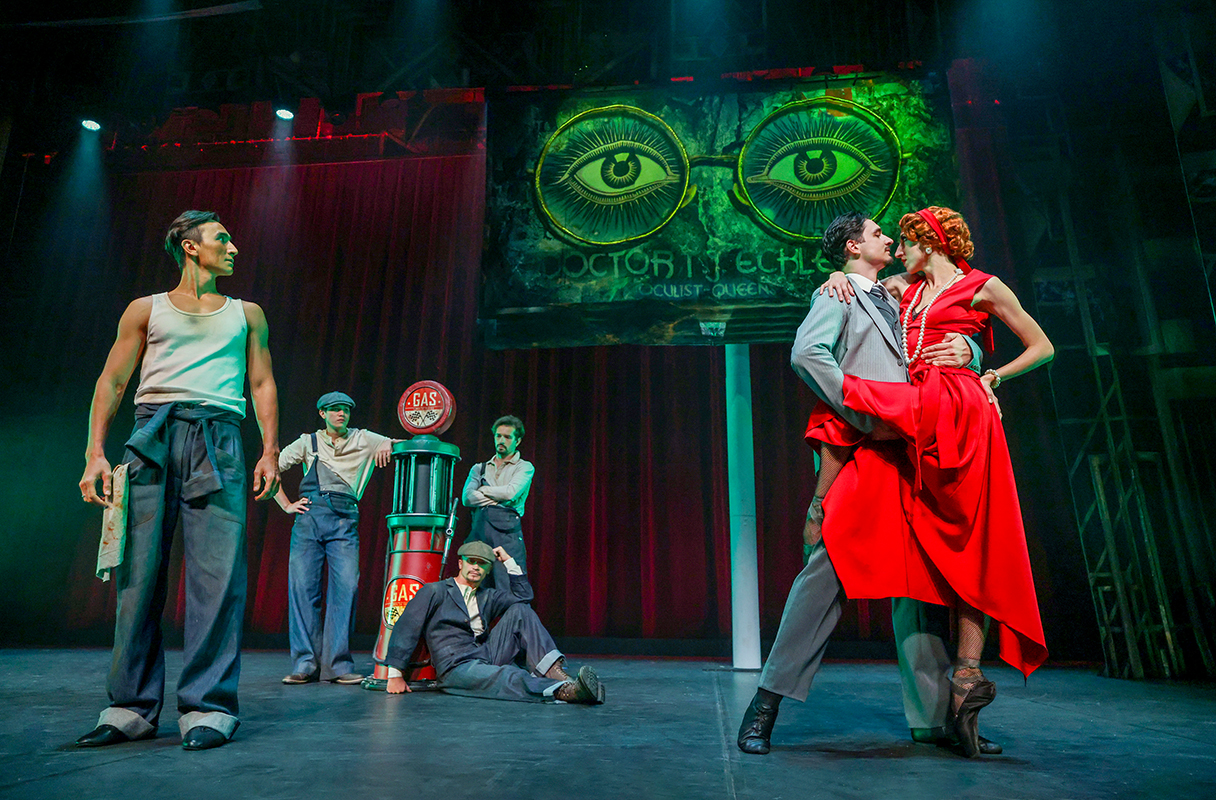
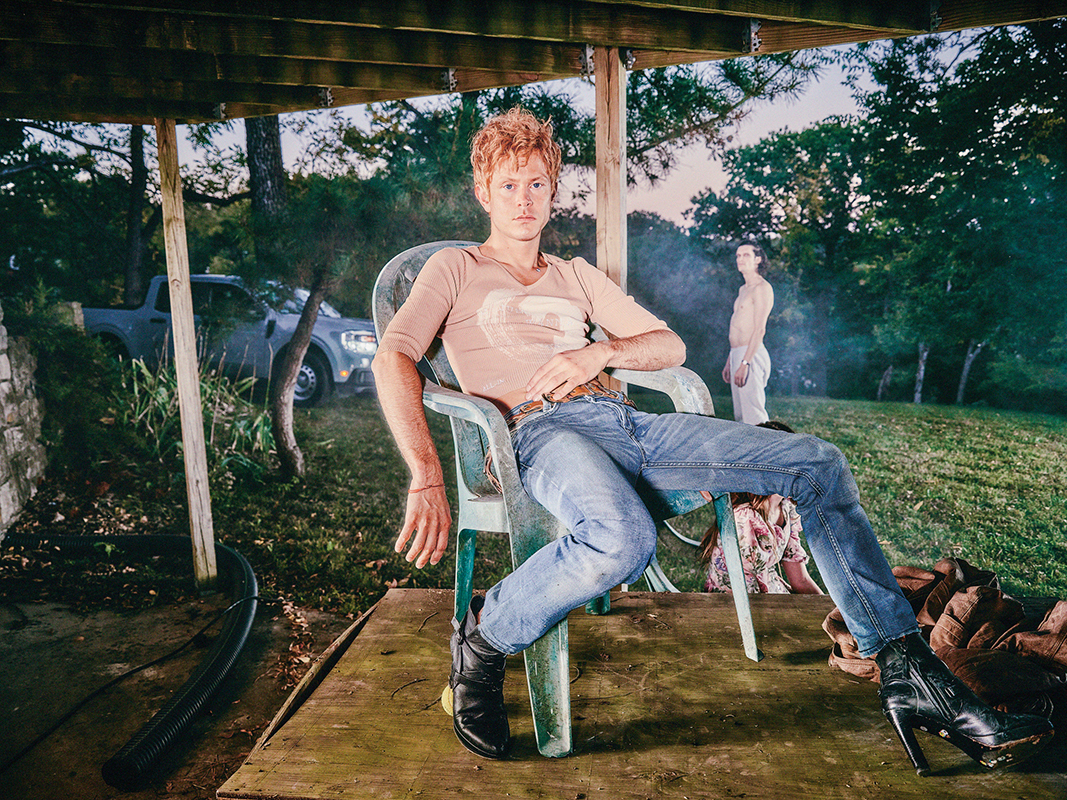
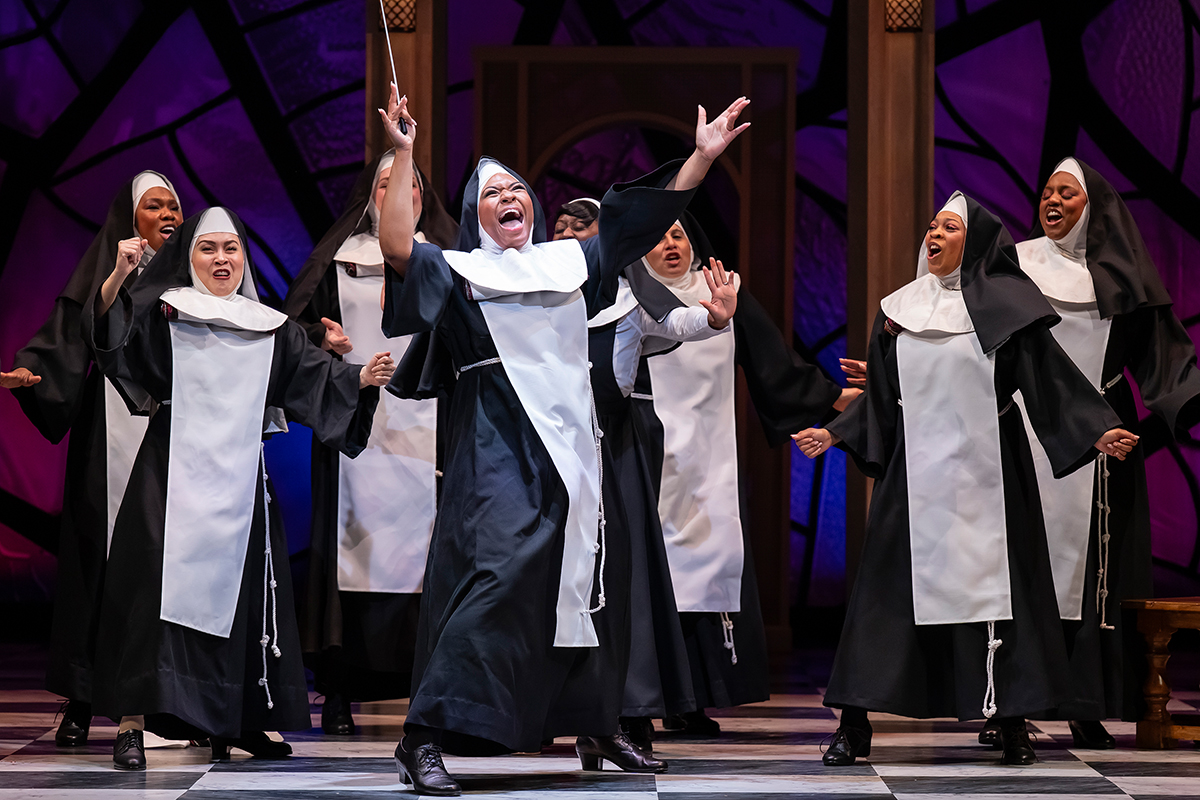













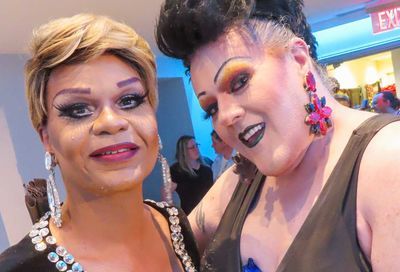
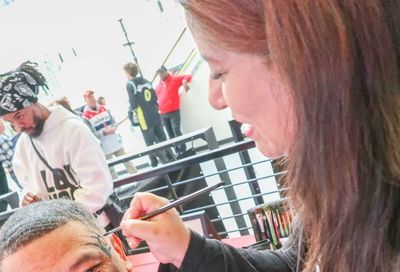
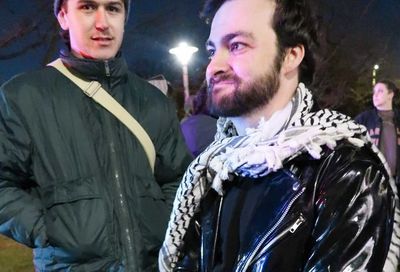
You must be logged in to post a comment.